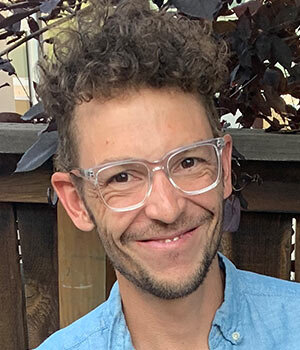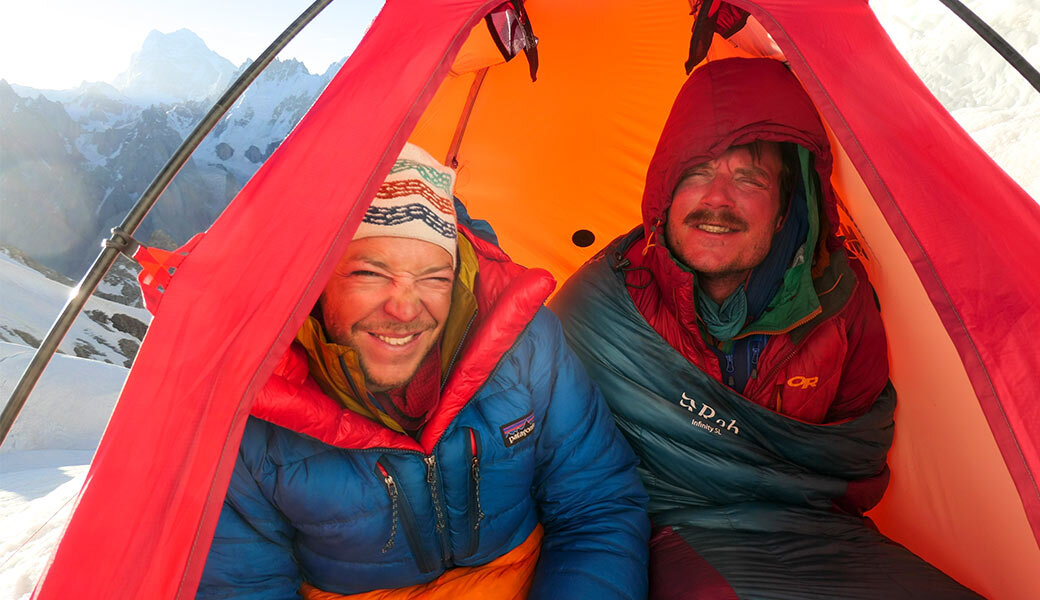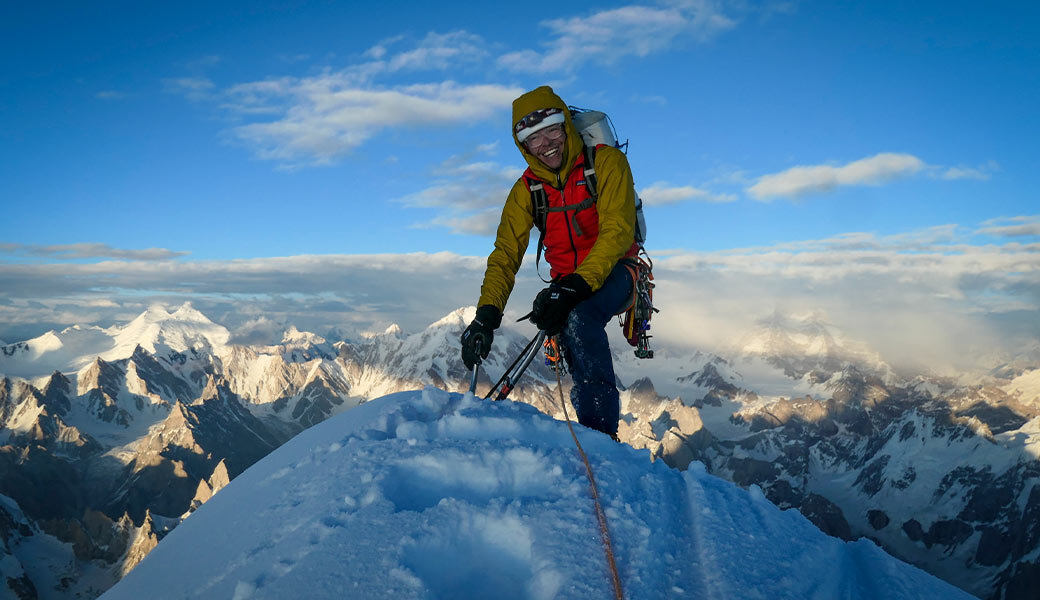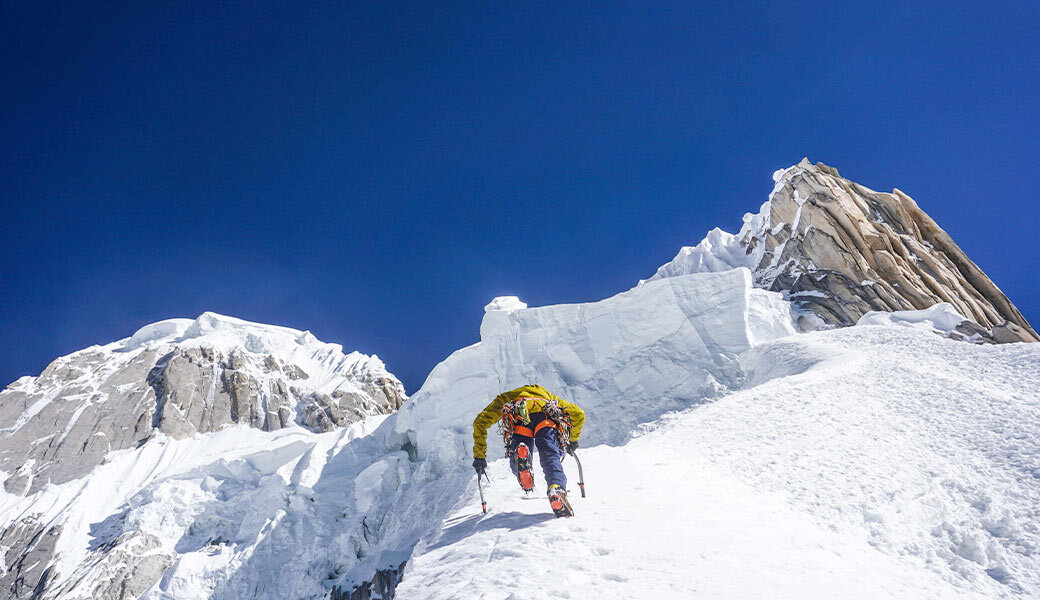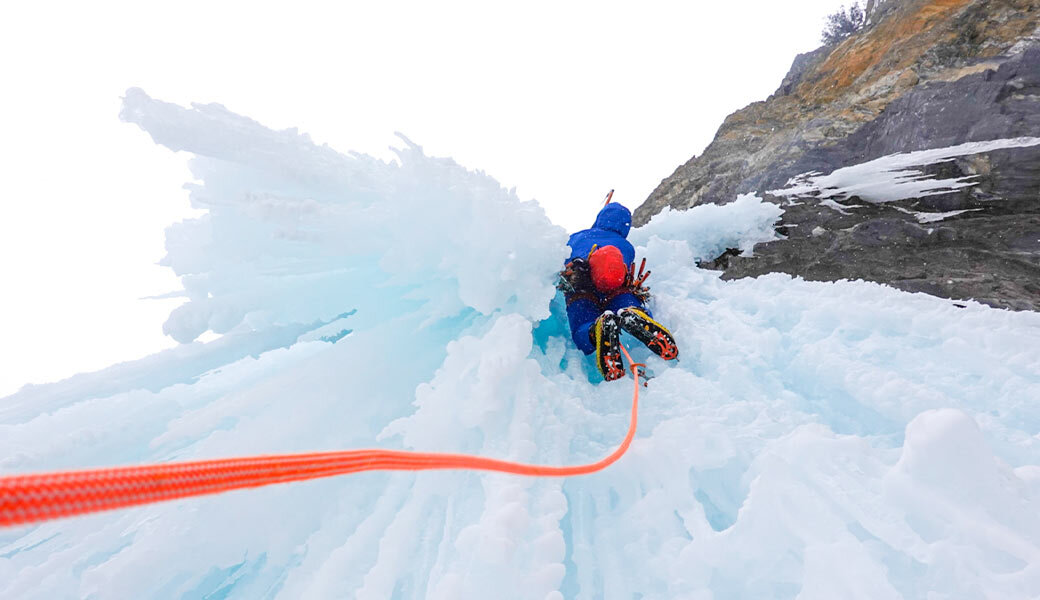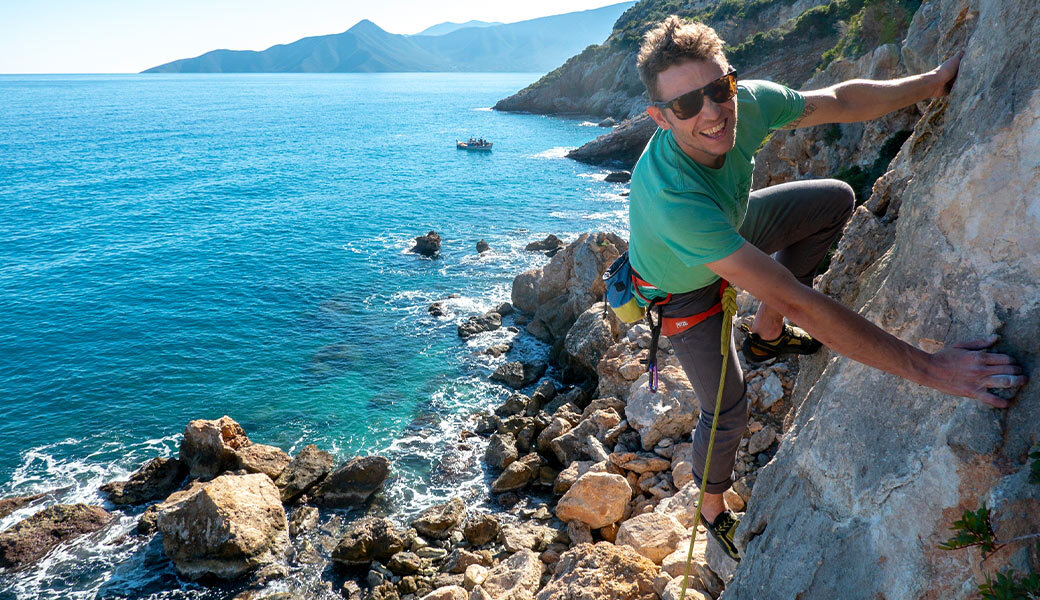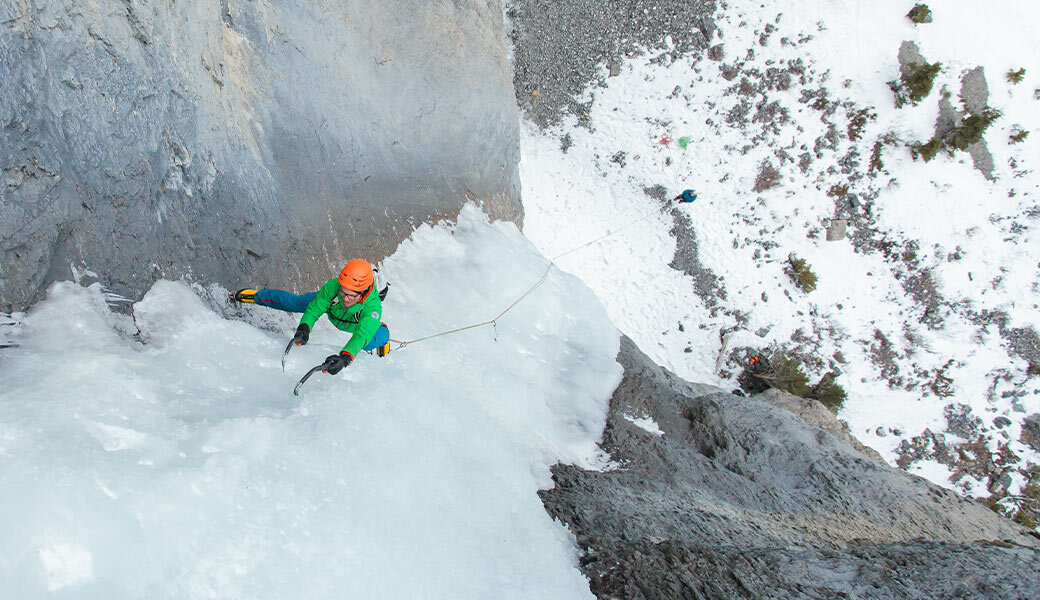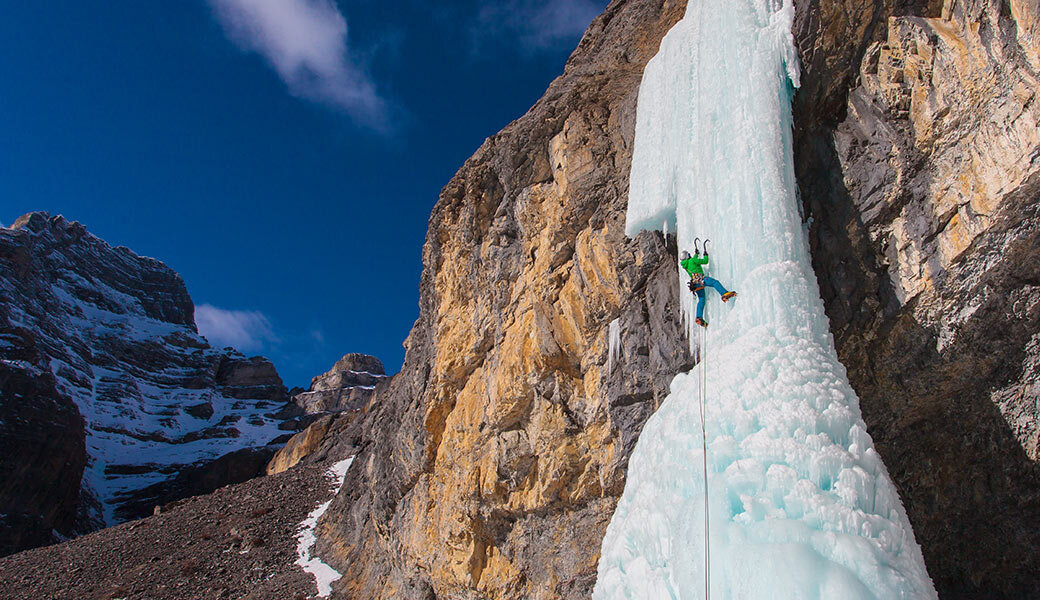Favorite type of climbing (bouldering, sports climbing, trad, etc.):
Alpine climbing, sport climbing, mixed climbing, trad climbing, ice climbing, ski mountaineering, and bouldering - and just about in that order. In my opinion, sport and alpine climbing are perfect compliments as they're almost polar opposites in that in one you're trying your best to have fun and not fall off, and the other is actually fun and you can fall all you want.
When and how did you get into climbing and what kept you interested / fascinated in the sport?
I have a very clear memory of this, because I just went climbing once with my buddy Al when I was in college because he asked and it sounded like fun. I knew rock climbing existed, but that was it at that point. We were at school in Manhattan, and he took me to the Gunks to go top-roping. I wore gym shorts (against his advice), we rigged an anchor with some webbing and ovals on a tree, had a blast, and I was hooked immediately. I later went back to the same cliff with my brother after borrowing Al's webbing, and after we walked all the way back from our anchor to the base of the cliff we saw some folks come rappelling down and knew we needed to get a clue after that.
Who was your childhood hero and do you consider yourself a role model now? Does it influence you at all that other people look up to you?
I don't know that I had a childhood hero really, but if I did it definitely wasn't a climber. I idolized snowboarders like Terje Håkonsen and skaters like Eric Koston and Chad Muska, but I knew I was never good enough to be them when I grew up. Now I think those memories make it kinda strange to be someone people listen to, because in my head it hasn't been that long since I was a grom reading about big climbs in the magazines and dreaming about doing something cool one day. So sure it influences me, but less in the choices I make as a climber and more in the way I interact with younger climbers and guides when I meet them.
What were the most important milestones in your life so far, both in climbing and in everyday life? Did you immediately recognize them as such or only later on?
I think I'll always remember that climb we did on The Mooses Tooth (it's actually supposed to be spelled without the apostrophe btw) as the first Wme I really did a route like the ones I'd dreamt about. I knew it at the time too, because it felt like a breakthrough. I was coming off an injury that le\ me feeling really motivated, and it's a long story but the way things came together to make that climb happen was pretty unique, and I think Scott Adamson, my partner on that climb, felt the same way so that was really a big, big moment for me. The rest of life might be a little more subtle I suppose, since I know things like buying a house and the first time I got to work as a mountain guide in France were huge, they just don't happen quite the same way.
What were your greatest failures / setbacks / injuries? How did you cope with them and how did you come back from them?
Well, I think the big one for me has to be breaking my back in 2010 and returning to climbing after that. Looking at it now, it was a really pivotal moment in my life in general since it made me take stock of where I was at and where I was going. The actual injury wasn't dramatic at all, but the doctors weren't sure if I'd ever be able to climb seriously again and the process of surgery and recovery was a pretty dark time for me. The positive that came out of it was real though, as it made me realize that I didn't have all the time in the world to do the things I wanted to do, and that if they were important I'd better get off my ass and do them now. That motivation was real gift, and it helped me see that all the cliches are true and that nothing should be taken for granted.
What is your favorite climbing related story / experience?
Oh man, there are so many. Just that question calls up a lot of memories - the serious ones, the proud ones, the goofy ones, and they all end up mostly being about sharing something really special with someone. It's a bright little montage in my head, but picking one out is tough. I did have a really funny encounter with Edelrid's own Tommy Caldwell once though. A friend and I were in our early twenties and doing The Nose on El Cap as our first wall climb and we screwed up everything possible and ended up sleeping in our harnesses hanging from some bolts on our first night. The next morning a couple of lights came speeding up behind us and of course it was Tommy and Beth. We were feeling pretty haggard but they were so nice and so encouraging and obviously total heroes of ours that when they told us to keep going we did. Five or six days later (after planning on being on the wall for three) we're about to claw our way to the top and who comes rappelling in with a cheerful "Oh it's you guys - you're still here! Great work!" They freed the route a few days later and wrote about how running into gapers like us was an inspiration, and we got to tell our friends we got into Alpinist Magazine. It's even funnier now too since I'm on the Edelrid team with Tommy and the Outdoor Research team with Beth, so I guess I'll have to tell them that story someday.


